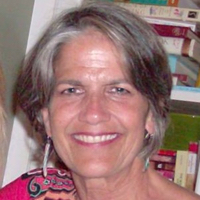Rascals case in brief
In the beginning, in 1989, more than 90 children at the Little Rascals Day Care Center in Edenton, North Carolina, accused a total of 20 adults with 429 instances of sexual abuse over a three-year period. It may have all begun with one parent’s complaint about punishment given her child.
Among the alleged perpetrators: the sheriff and mayor. But prosecutors would charge only Robin Byrum, Darlene Harris, Elizabeth “Betsy” Kelly, Robert “Bob” Kelly, Willard Scott Privott, Shelley Stone and Dawn Wilson – the Edenton 7.
Along with sodomy and beatings, allegations included a baby killed with a handgun, a child being hung upside down from a tree and being set on fire and countless other fantastic incidents involving spaceships, hot air balloons, pirate ships and trained sharks.
By the time prosecutors dropped the last charges in 1997, Little Rascals had become North Carolina’s longest and most costly criminal trial. Prosecutors kept defendants jailed in hopes at least one would turn against their supposed co-conspirators. Remarkably, none did. Another shameful record: Five defendants had to wait longer to face their accusers in court than anyone else in North Carolina history.
Between 1991 and 1997, Ofra Bikel produced three extraordinary episodes on the Little Rascals case for the PBS series “Frontline.” Although “Innocence Lost” did not deter prosecutors, it exposed their tactics and fostered nationwide skepticism and dismay.
With each passing year, the absurdity of the Little Rascals charges has become more obvious. But no admission of error has ever come from prosecutors, police, interviewers or parents. This site is devoted to the issues raised by this case.
On Facebook
Click for earlier Facebook posts archived on this site
Click to go to
Today’s random selection from the Little Rascals Day Care archives….
Click for earlier Facebook posts archived on this site
Click to go to
Today’s random selection from the Little Rascals Day Care archives….
‘The prosecution failed at everything but….’

facebook.com/nancylambfordistrictattorney
Nancy Lamb
May 10, 2016
“Assistant District Attorney Nancy Lamb once said, ‘The goal of the prosecution is to seek justice.’
“If the defendants were guilty, the prosecution failed.
“If the defendants were innocent, the prosecution failed.
“The prosecution failed at everything but taking years from people’s lives, ruining their reputations, breaking up their marriages, dividing the people of a small town, wasting more than $1 million of the taxpayers’ money and smearing North Carolina’s reputation.”
– From “ ‘Rascals’ debacle ends, but damage is done,” an editorial in the Wilmington Morning Star (Sept. 27, 1999) after prosecutors dropped the last charges against Bob Kelly
![]()
Holocaust child-survivors needed no coaxing
 June 22, 2012
June 22, 2012
“Teen-age Holocaust victims had no trouble looking their abusers straight in the face and saying, ‘You did this to me, you monster.’ None of them, when they were younger, had to have any of their memories elicited. Nor were there embellishments of clowns throwing fire around the room.
“The author of a book on Holocaust survivors, ‘New Lives,’ had this to say: ‘I interviewed hundreds of Holocaust survivors. Would that they could forget anything. At age 4, at age 5 they remembered everything on the SS officers’ uniforms.’ ”
“The author is the Wall Street Journal’s Dorothy Rabinowitz, the first journalist to provide the same in-depth reportage about Fells Acres that ‘Frontline’ provided about Little Rascals and Abby Mann did for the McMartin trial in an HBO movie.”
– From “Abusing Justice, in the Name of Children” by Ed Siegel in the Boston Globe (September 8, 1995)
Moral panics, strange to begin with, also make strange bedfellows

Cohen
June 14, 2018
“America has a long history of episodic moral panics in which self-styled experts, sensationalistic journalists and public officials used emotionally charged language and a barrage of (often distorted) statistics to portray a particular social problem as widespread and urgent….
“The 1980s brought [a] moral panic precipitated by unease about double-income families and the supervision of children by strangers at day-care centers….
“All these scares produced unexpected political alliances. Conservatives concerned with moral purity, law-and-order and Christian values joined forces with feminists worried about victims of sexual trauma and liberals in favor of strong government regulation. When forces from the right and left converge in a moral panic, their causes possess greater appeal to the public. We see this today as women’s rights advocates join the sex-trafficking fight along with the religious right. The result is a runaway train with no real political force left in opposition….”
– From “President Trump signed a new law that aims to fight online sex trafficking. Here’s why that’s bad.” by Sascha Cohen in the Washington Post (April 12)
![]()
Did fear of Bob Kelly keep women behind bars?
Jan. 25, 2012
I’ve heard again from the anonymous caller who responded to my ad in the Elizabeth City Advance addressing children involved in the Little Rascals case.
The caller reiterated her certainty that she had been sexually abused by Bob Kelly, but – to my shock – she expressed doubts about the degree of involvement of other defendants, especially the young women who worked at the day care.
“I don’t hold any grudges against them,” she said. “I think he made them do whatever they did – it wasn’t on their own.”
Why then would these women choose to stay imprisoned, when testifying against Bob Kelly would’ve won them instant freedom?
“They were scared of him,” she said.
Does that seem probable? Or even conceivable?
Robin Byrum, 19 when she was arrested, spent almost a year in jail before her bond was reduced from $500,000 to $200,000. Meanwhile, her husband took care of their 7-month-old son.
In “Innocence Lost: The Plea” (1997), Byrum explained why she had been tempted by but repeatedly refused the prosecutors’ deal: “…. I would not ever have to be separated from my child again. But then I’d have to live with the rest of my life that I (said I) did something when I didn’t do it.”











0 CommentsComment on Facebook